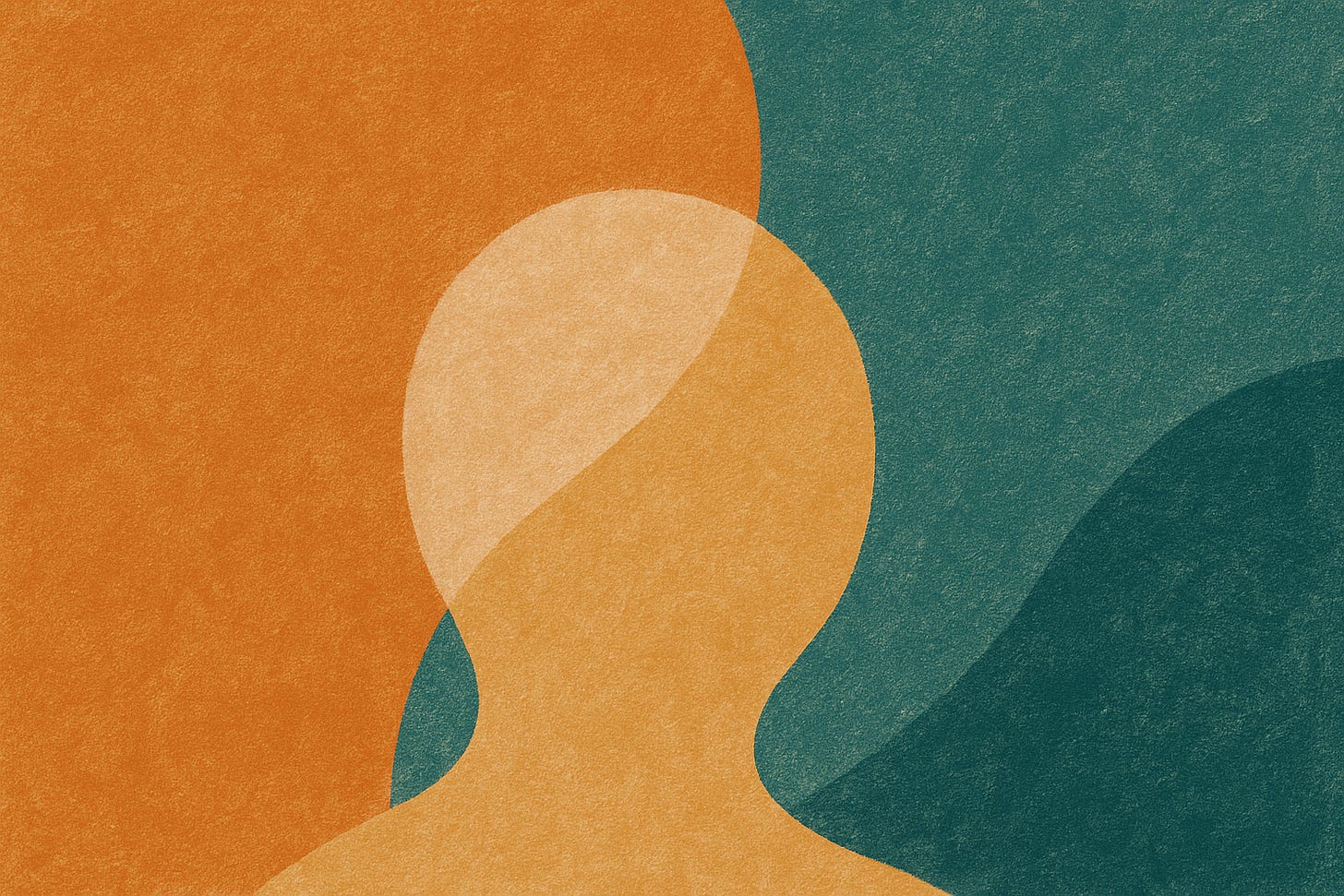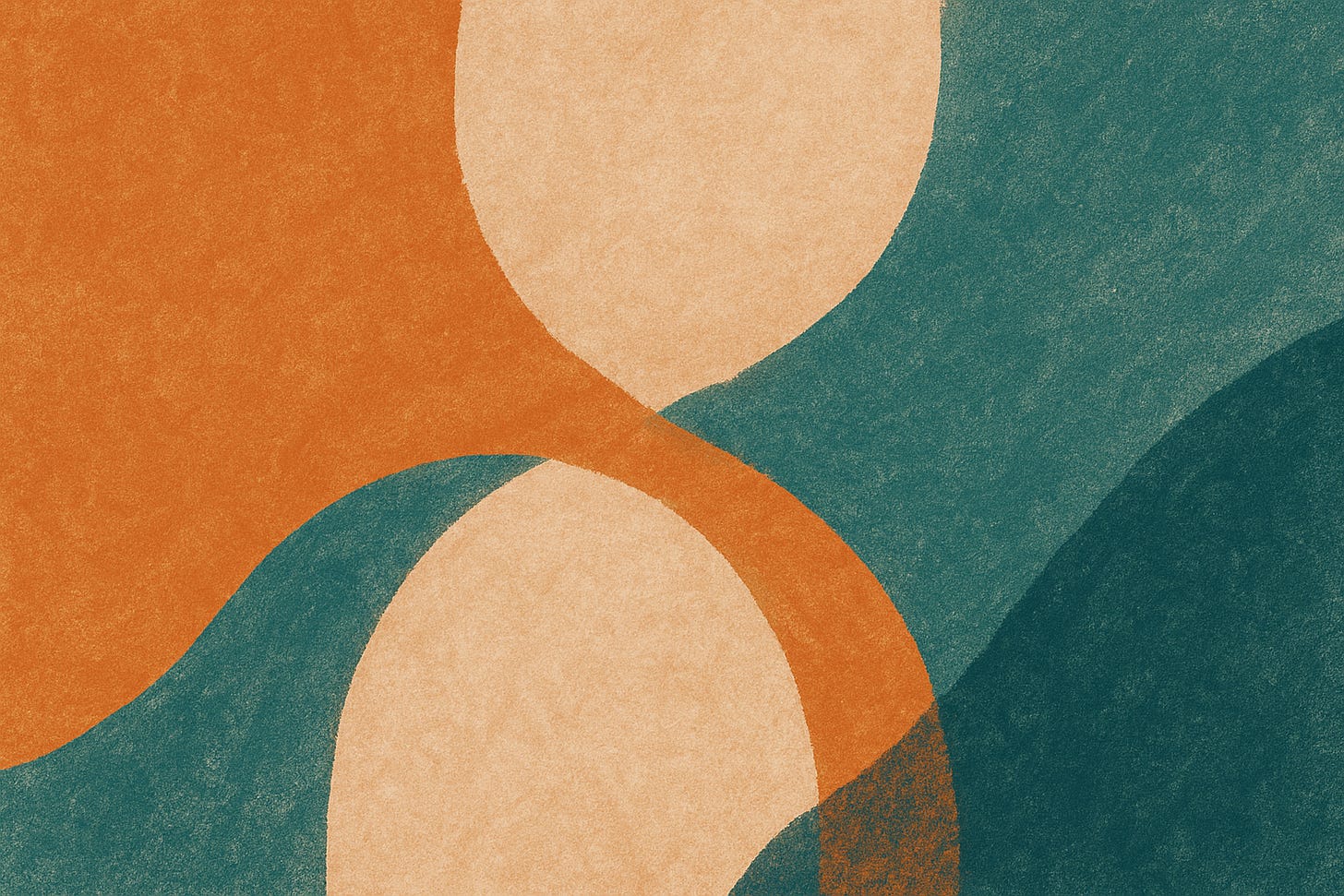About Self-Doubt: You Don’t Have to Overcome It to Find Your Voice
I will take you through the story of someone learning to find and trust their own voice.
This post is also an invitation to join reflective group space, where together we’ll have a chance to pause, reflect, and begin shifting from self-doubt to self-trust. Through guided exercises, we’ll explore the roots of self-doubt and practice more grounded, confident ways of relating - to yourself and others. You can find more information here.
Finding where to start
Even the most confident among us are not immune to self-doubt. It can cloud our decisions, pull us into overthinking and self-blame, we may find ourselves holding back from expressing how we feel or what we think, or self-doubt can leave us feeling stuck, confused or disconnected from ourselves and disengaged from the world.
Alan Watts, British Philosopher, writer and speaker once said, "You can't get rid of fear by fearing it." The same goes for self-doubt — the harder we fight it, the stronger it feels. But what if, instead of seeing it as a flaw to fix, we treated it as an invitation to better understand ourselves?
I leaned into the self-doubt itself.
Self-doubt is deeply personal and there’s no single truth to uncover or one-size-fits-all explanation. I don’t intend to exhaust every reason behind self-doubt. In fact, the topic is so broad that to see the forest, I had to ignore some of the trees – at least for now.
I will take you through the story of someone learning to find and trust their voice. I will pose three doubt-related questions inspired by Erik Erikson’s developmental stages to help you reflect on your own experience.
Can I trust myself or must I rely on others?
When I think about where self-doubt begins, I’m reminded how deeply it’s shaped by our relationships.
"To be human is to be in relationship with others." - R.G. Erskine
As children, we depend on parents, teachers, and caregivers. Their responses to us shape the stories we tell ourselves about who we are, who others are and how the world works.
It can be very subtle. Maybe you’re a toddler, sitting at the kitchen table, tears welling up because something felt unfair. Someone important to you says, “Stop being so sensitive,” or “Others have it worse—be grateful.” Over time, these messages take root.
Eventually, you start to question your own feelings before they fully form. One part of you might be feeling angry or sad about something, while another part believes it’s not safe or not acceptable to express these feelings. And so the conflict begins. The internal split. You may learn to silence yourself, to search outside for what’s “right” to feel. You may find it impossible to make sense of what’s going on inside, hence feeling overwhelmed, anxious or confused. At the same time, a still-developing child’s mind can draw all kinds of conclusions.
In Transactional Analysis, an impasse is a stuck place we can get into — especially in our relationships, including the one we have with ourselves. Impasses are signs that early conclusions — like “don’t be important” “don’t show sadness or anger,” or “don’t be a child” — might still be quietly running in the background. In the meantime, inside we feel deeply – afraid, angry, sad, lost, we long for connection, to be understood and valued. Impasses often go hand-in-hand with self-doubt, because the signals from the mind and body are tangled.
Impasse or stuckness is the echo of something old, asking—quietly, persistently—to be understood.
Who am I and where am I going?
Eventually, we all reach a point where we’re given the space to choose - for ourselves. It might come with graduating, changing careers, or leaving a relationship. In those moments, our sense of self is tested again, and we’re confronted with a new challenge: who are we really, beyond what we’ve been told, expected to be, or learned to feel comfortable with?
It’s common to experience self-doubt along the way, especially when we don’t fit neatly into one identity category or the prescribed path doesn’t feel right for us.
I’ve found that fiction often captures and articulates our most complex human experiences. Tara Westover’s memoir, Educated, explores the themes of identity and self-doubt. Tara is raised in a strict, survivalist Mormon household, where her family identity is deeply tied to distrust of government and education, and rigid religious beliefs. As she starts pursuing formal education, she constantly wrestles with the gap between the person she was raised to be and the person she is becoming. Her story illustrates how intersecting pressures — from family expectations to cultural and gender norms — amplify self-doubt.
“You could call this selfhood many things. Transformation. Metamorphosis. Falsity. Betrayal.” - Tara Westover, Educated: a memoir
The book Life Isn’t Binary by Meg-John Barker and Alex Iantaffi invites us to move beyond either/or thinking and embrace both/and experience. Maybe you’re like Tara navigating between family and global worlds, or maybe you’re mixed race, date across cultures, or have moved from poverty to financial security. Your identity might not fit into one clear box, and that can be both freeing and isolating. When we don’t have the language to name our truth, things can feel unclear.
Growth can come with grief, and clarity with distance. But first, we need to allow ourselves to see ourselves honestly and with compassion.
Can I be valued and loved?
Let’s say you’ve chosen a path. But then comes the challenge of staying on it
Have you ever been in a room where, in theory, everyone is welcomed, but in practice, some voices dominate while yours goes unheard? Maybe you voiced an idea in the meeting, and it was ignored but became legitimised when repeated by someone else. Or maybe you were invited to speak but not to decide. Silencing is subtle. It often goes unchallenged. But then you start questioning yourself, your value, your place, how you are perceived, and whether you belong at all.
We’re so quick to call this imposter syndrome and frame this as personal insecurity. But what if it’s not internal? What if your self-doubt is the result of being in spaces that weren’t built to recognise your voice?
No amount of affirmations will undo the impact of systems that fail to recognise your worth. When society quietly signals that certain identities are less than others - women, people of colour, neurodivergent minds, immigrants, those living with disabilities - it makes sense to carry doubt.
So maybe the question isn’t, Why do I feel this way? Maybe it’s, What am I responding to—and how do I navigate power dynamics in relationships, how can I claim my power back?


